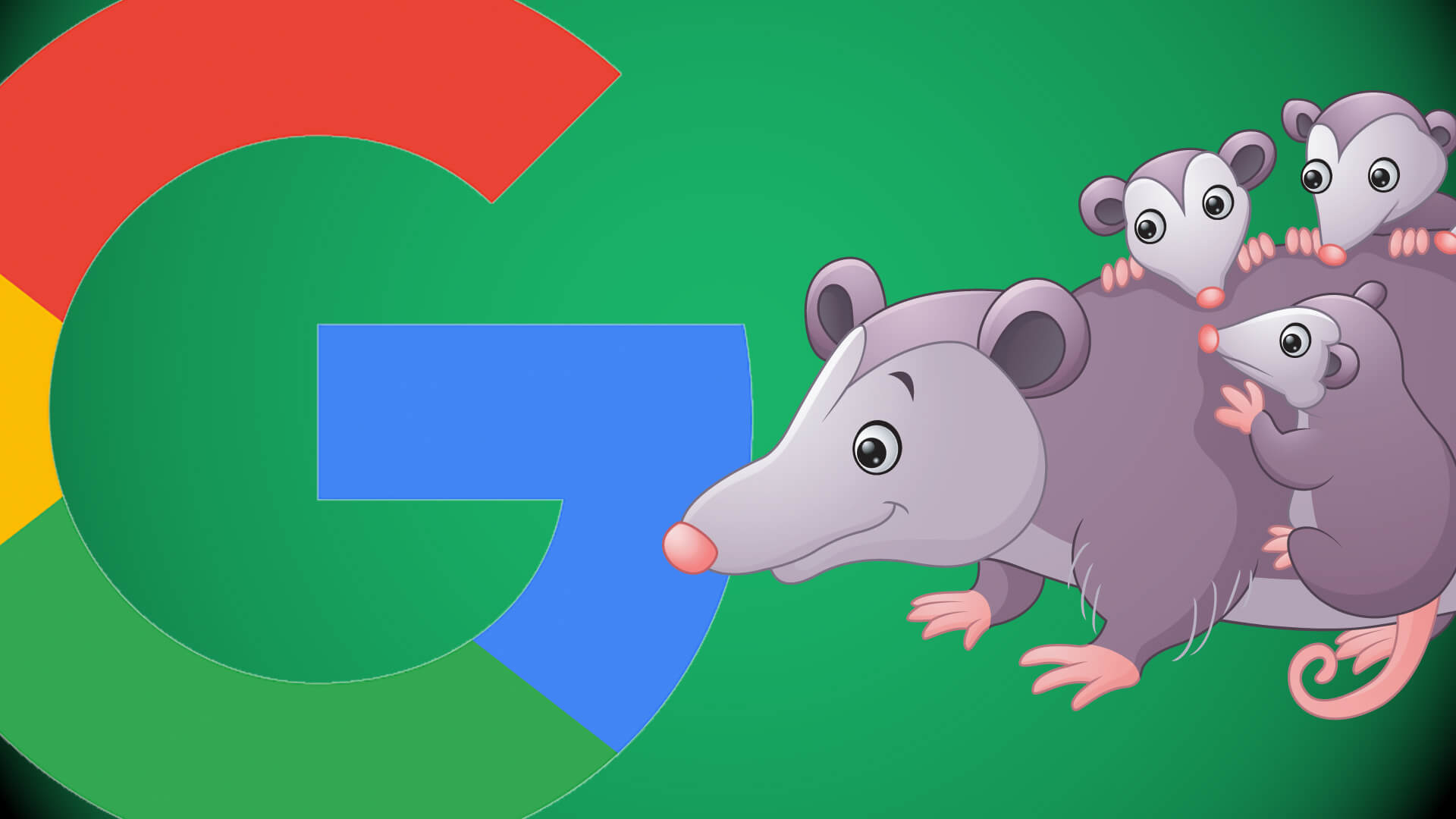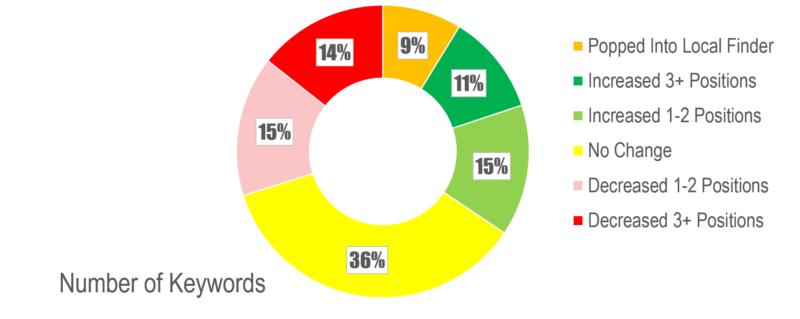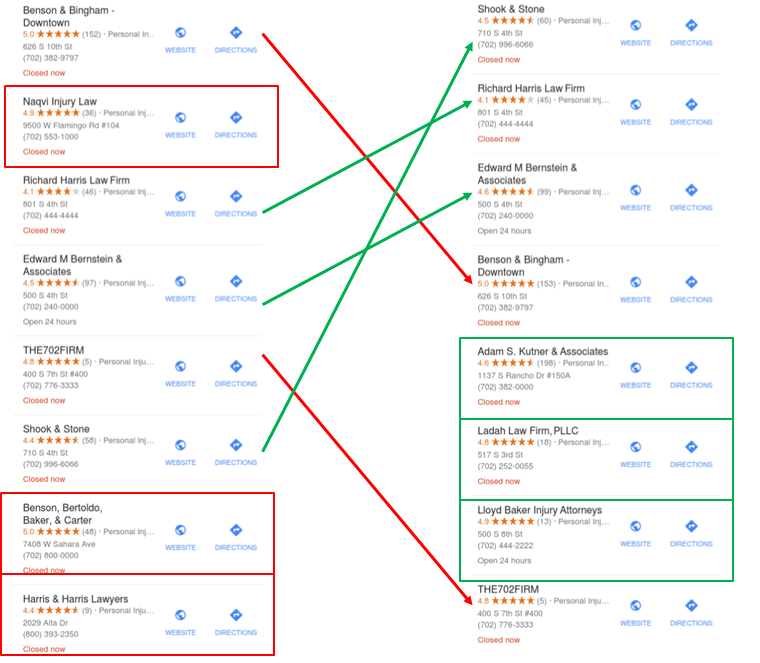Study shows Google’s Possum update changed 64% of local SERPs
How significantly did the Possum update impact local search results in Google? Columnist Joy Hawkins shares data and insights from a study she did with BrightLocal, which compared local results before and after the update.
In the local SEO community, Google’s recent Possum update was a very big deal.
To those of us who regularly track the search results for local businesses, it was obvious there were massive changes on September 1. The SEO community as a whole has been relatively quiet about this huge update, and I believe this is because this update primarily impacted the Local/Maps search results and not organic.
SERP trackers like MozCast and Algoroo do a fabulous job of tracking changes in the search results, but this algorithm update didn’t seem to make any massive impact in the charts. I believe that is because local queries that trigger a 3-pack are only a fraction of what these programs track. In all likelihood, the majority of the SERPs they track would not contain a 3-pack — and therefore, big changes in the 3-pack wouldn’t necessarily show on the radar.
I wanted to know exactly how much of a shake-up this algorithm was when it came to just Local/Map results, so I reached out to Bright Local to track ranking for our clients. They track both organic ranking and ranking in the Local Finder (the list of local results you get when you click “more places” under the 3-pack). And our ranking reports scan daily, so it would be able to pick up any major changes, regardless of the day when it happened.
I asked them to look at the ranking trackers for 1,307 different businesses, which were tracking 14,242 keywords. Then we compared the difference between September 7 and August 31 (the date before Possum).
What we ended up finding was that, across all the reports:
- 9% of the keywords had the business pop into the Local Finder when they weren’t there previously.
- 11% of the keywords showed the business had increased in position by three or more positions.
- 15% of the keywords showed the business had increased in position by one to two positions.
- 35% of the keywords showed no change in position for the business.
- 15% of the keywords showed the business had decreased by one to two positions.
- 14% of the keywords showed the business had decreased by more than three positions.
In other words, 64% of keywords saw some type of change.
As we know, SERPs can change daily without an algorithm update, but the important thing to note here is the vastness of the change. For example, 34 percent of the keywords saw some type of significant change, with a “significant change” being defined as a business shifting three or more positions or a business appearing in results when previously they weren’t even listed in the top three pages (60 positions) in the Local Finder.
For those of you who like visuals, here is a snapshot of the Local Finder results for “Personal Injury Lawyer Las Vegas.” On the left is how it looked August 31. On the right is how it looked following the Possum update. The red arrows show how a business fell in positioning, whereas the green arrows show an increase in position. The red and green boxes are businesses that either vanished or popped into the Local Finder due to the update.
So, what now?
I have spent the last couple of months analyzing dozens of specific scenarios for businesses to try to find patterns in what changed. Some of my findings have been included in recent articles I’ve written (This one shows some patterns, and this one shows some things that impact the filter).
For now, it’s crucial for local SEO practitioners to spend time analyzing changes to help figure out which Local Ranking Factors changed as a result of Possum. So far, I have been realizing that the answers are becoming harder and harder to find as Google’s algorithm becomes more complex — and it’s no longer as easy as “getting the most reviews” or keyword-stuffing categories, which worked phenomenally several years ago.
Contributing authors are invited to create content for Search Engine Land and are chosen for their expertise and contribution to the search community. Our contributors work under the oversight of the editorial staff and contributions are checked for quality and relevance to our readers. The opinions they express are their own.
Related stories
New on Search Engine Land



